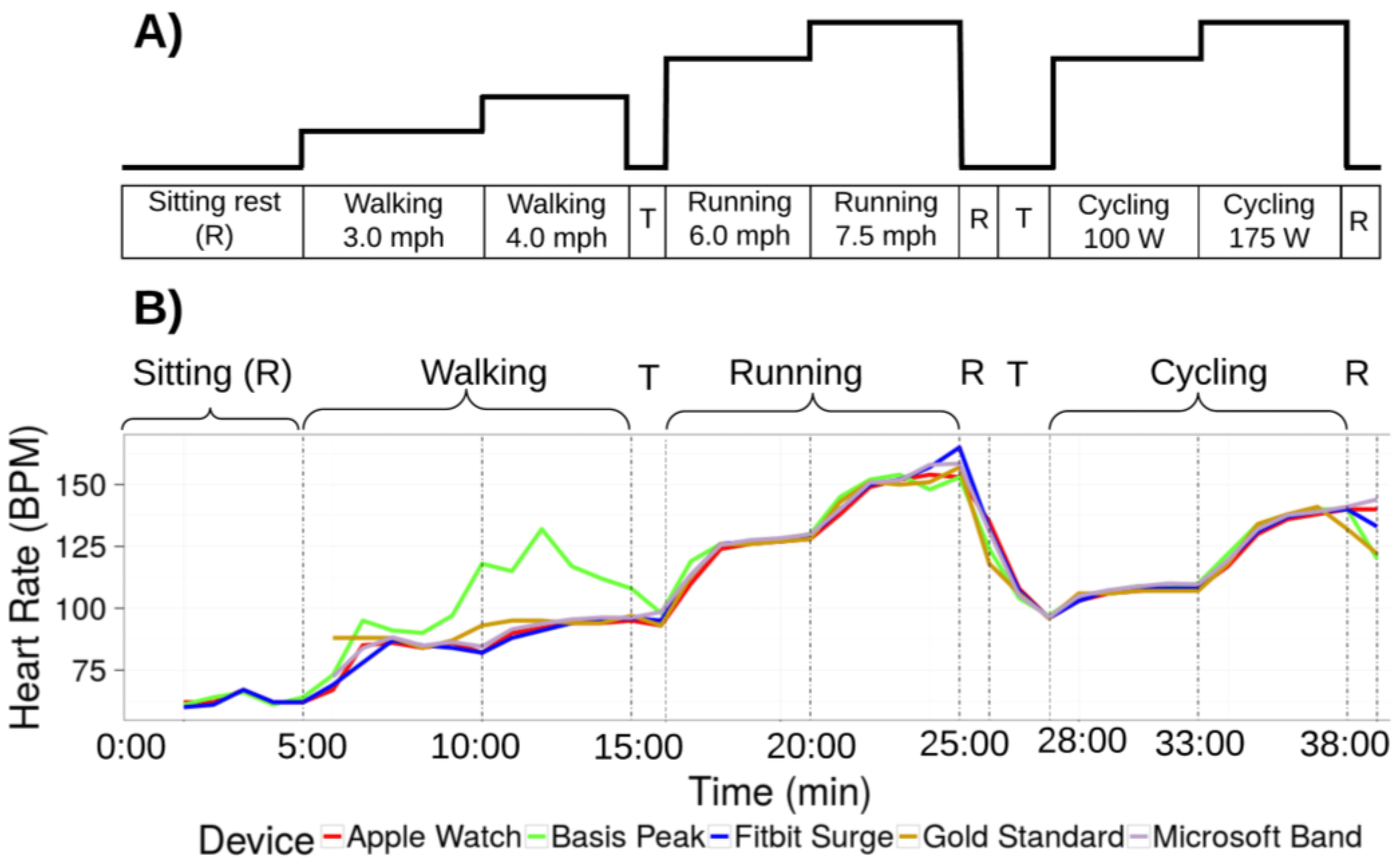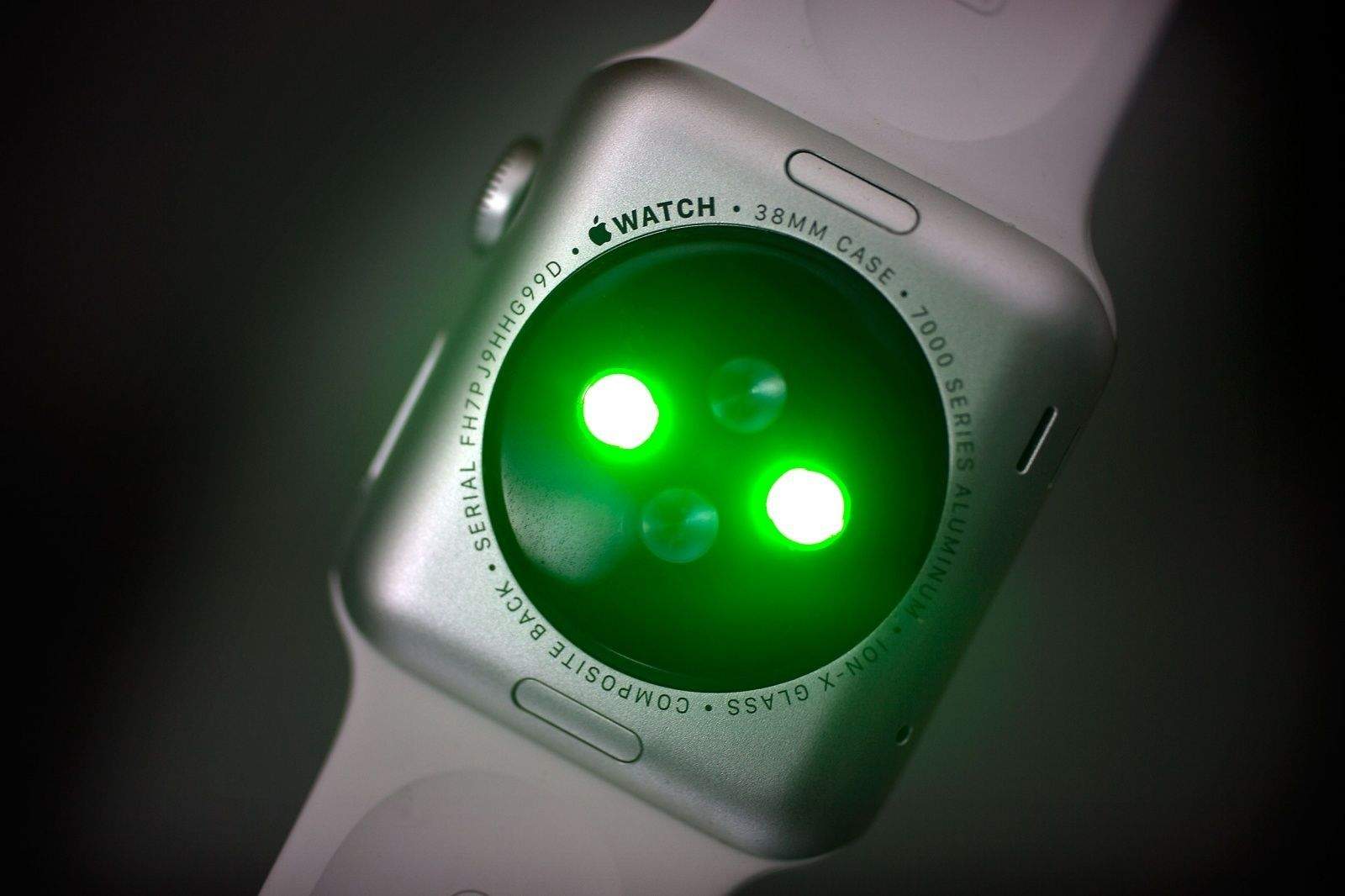When it comes to measuring heart rate and calories burned, not all fitness trackers are created equal, based on the findings of a scientific study that pitted the top wearables on the market against each other.
The in-depth study conducted by researchers at Stanford University was published today, revealing that Apple Watch is the most accurate wrist-worn tracker on the market, but it’s still far from perfect.
In their paper titled “Accuracy in Wrist-Worn, Sensor-Based Measurements of Heart Rate and Energy Expenditure in a Diverse Cohort,” researchers evaluated the Apple Watch, Basis Peak, Fitbit Surge, Microsoft Band, Mio Alpha 2, PulseOn, and Samsung Gear S2.
Researchers concluded that Apple Watch achieved the lowest overall errors when measuring both heart rate and energy expended. Samsung did the worse overall with the Gear S2 reporting the highest amount of errors for both fields.
The study found that the wrist-worn trackers had the lowest error rate when a person was cycling. Walking provided the highest amount of errors.
Six of the seven devices tested all achieved a median heart rate error below 5%. Tracking calories burned is much tricker though. Not a single device tested had an error rate below 20 percent, so if you’re trying to use your Apple Watch or FitBit to count calories, you probably need to find a more accurate method.



3 responses to “Study finds Apple Watch is most accurate wearable at measuring heart rate”
Everyone that has done any workouts on gym machines like treadmills, stair steppers, stationary bikes, etc. knows that the calories burned are always WAY overestimated. I don’t see why it would be any different with fitness trackers. Also good luck trying to figure out your true calorie consumption from nutrition labels and estimated portions. From personal experience, everyone always self reports lower than they actually eat. I just try and eat well with healthy food and stay away from empty calories.
So, even if the heart rate measurement were accurate within 5%. It is still that dang algorithm that can screw with what you’re burning. What is a safe number to subtract from your calories burned? 10%? 20%? 30%?
I posted this on another article, but if I wear a heart rate monitor (the kind that go over your heart, not the wearable versions), that can give me a pretty accurate result, but two different apps will tell me two different calorie burns because they do the math different.
If an app tells me I burned 800 calories on a run (outside), do I trust those numbers or subtract 30% from the results, so my burn would actually be 560 calories?
.